Institutional Member of the Month: Minnesota Population Center
Kaori Fujishiro
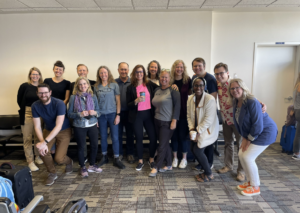 Tell us about your institution. What is the mission of the institution?
Tell us about your institution. What is the mission of the institution?
The Minnesota Population Center (MPC) at the University of Minnesota develops and sustains innovative, high-quality, and transformative interdisciplinary population science. It empowers and trains researchers to study and solve the population issues and problems of yesterday, today, and tomorrow.
We do this by:
- Creating, sustaining, and expanding an intellectual community of interdisciplinary population researchers.
- Helping researchers to develop, fund, and execute cutting-edge population research projects.
- Formally and informally training the next generation of interdisciplinary population researchers, teachers, and professionals.
- Providing outstanding administrative and technical support for population research and training.
- Effectively and efficiently disseminating and communicating research findings and their implications to diverse stakeholders and audiences.
- Responding to and engaging with local, state, national, and international partners and communities.
Why did you decide to make the connection between your program and IAPHS?
Population health is one of the key themes of our research center, of one of our training programs, and of many of our members.
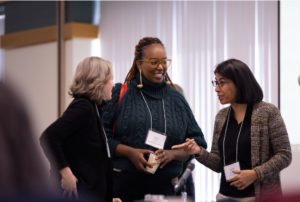 We’d love to hear more about the research your members engage in. What are some themes that run through the research in your program?
We’d love to hear more about the research your members engage in. What are some themes that run through the research in your program?
At MPC, we have five primary research areas that encompass the largest and most compelling projects housed at our center. Many of these research areas are closely tied to population health science, and research interests shared by IAPHS and its members, including population health and health systems, reproductive health, and structural racism and health inequities. Many of our predoctoral and postdoctoral trainees are focused on population health, and some are funded by an NICHD training grant. We also have over two dozen members who are also members of IAPHS and regularly attend the meetings – faculty, students, postdocs and research scientists.
Are there any recent research projects/grants/publications that you’d like to highlight?
Recent Published Research:
- Warren JR, Rumore G. The association between playing professional American football and longevity. Proc Natl Acad Sci U S A. 2023 Nov 7;120(45):e2308867120. doi: 10.1073/pnas.2308867120. Epub 2023 Oct 30. PubMed PMID: 37903248; PubMed Central PMCID: PMC10636321.
- Nick Graetz, Michael Esposito, Historical Redlining and Contemporary Racial Disparities in Neighborhood Life Expectancy, Social Forces, Volume 102, Issue 1, September 2023, Pages 1–22, https://doi.org/10.1093/sf/soac114
- Karbeah, J., & Hacker, J. D. (2023). Racial residential segregation and child mortality in the southern United States at the turn of the 20th century. Population, Space and Place, 29, e2678. https://doi.org/10.1002/psp.2678
- Andrew Fenelon, Natalie Slopen & Sandra J. Newman. The Effects of Rental Assistance Programs on Neighborhood Outcomes for U.S. Children: Nationwide Evidence by Program and Race/Ethnicity. Urban Affairs Review; 2023: 59, 832–865.
- Gollust Sarah E, Gansen C, Fowler EF, Moore S, Nagler RH. Polarized Perspectives on Health Equity: Results from a Nationally Representative Survey on U.S. Public Perceptions of COVID-19 Disparities in 2023. J Health Polit Policy Law. 2023: Nov 21:11066304. doi: 10.1215/03616878-11066304. Epub ahead of print. PMID: 37987174.
- Wrigley-Field Elizabeth, Berry Katie M, Stokes AC, Leider JP. COVID-19 Vaccination and Racial/Ethnic Inequities in Mortality at Midlife in Minnesota. Am J Prev Med. 2023 Feb;64(2):259-264. doi: 10.1016/j.amepre.2022.08.005. Epub 2022 Nov 1. PMID: 36653101; PMCID: PMC9622467.
- Hassan Asha, Ojanen-Goldsmith Alison, Hing Anna K., Mahoney Madeline, Traxler Sarah, Boraas Christy M. More than tears: associations between exposure to chemical agents used by law enforcement and adverse reproductive health outcomes. Frontiers in Epidemiology. VOL 3, 2023. DOI: 10.3389/fepid.2023.1177874
- Theresa L. Osypuk, Samantha Gailey, Nicole M. Schmidt, Dolores Acevedo Garcia. (In press, 2024). Does Poor Health Influence Residential Selection? Understanding Mobility Among Low-Income Housing Voucher Recipients in the Moving to Opportunity Study. Housing Policy Debate. https://doi.org/10.1080/10511482.2023.2301336
- Dorélien Audrey M, Venkateswaran N, Deng J, Searle Kelly, Enns Eva, Alarcon Espinoza G, Kulasingam Shalini. Quantifying social contact patterns in Minnesota during stay-at-home social distancing order. BMC Infect Dis. 2023 May 15;23(1):324. doi: 10.1186/s12879-022-07968-1. PMID: 37189060; PMCID: PMC10184106
Recent Research Projects:
- Samuel Myers, Jr. – an NICHD grant to study the effectiveness of public policy interventions in reducing racial disparities in drowning.
- Shekinah Fashaw-Walters – an NIA funded project to create home health process and outcome equity measures by calculating race- and ethnicity-specific quality ratings to examine the organizational characteristics of home health agencies with the highest ratings and those with the highest share of patients of color.
- Heather Randell – an NICHD research grant to investigate effects of development-induced displacement on women and children’s well-being.
- Evan Roberts – an NIA funded project to examine whether wealth exerts causal effects on health and long-term mortality, using evidence from lifetime follow-up of a randomized land redistribution in New Zealand.
- The Minnesota Population Center is supported by the NIH/NICHD Population Dynamics Centers Research Infrastructure Program P2C Center Grant (P2CHD041023), led by Principal Investigator and MPC Director Theresa Osypuk, and Associate Director Elizabeth Wrigley-Field.
- The Interdisciplinary Population Health Science Training: Linking Multilevel Forces Across Time is an NIH/NICHD T32 Training Program, supporting predoctoral and postdoctoral fellows, led by Principal Investigators J. Robert Warren and Theresa Osypuk.
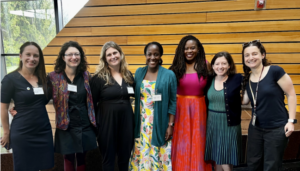 What makes your institution interested in interdisciplinary work?
What makes your institution interested in interdisciplinary work?
Mixing of ideas among disciplines promotes scientific innovation. Such mixing makes our center vibrant, and stimulates ideas among our researchers. We have been interdisciplinary since our founding, and University of Minnesota supports us fully in our mission.
If you do interdisciplinary work, what are the challenges? How would you like to see IAPHS support your institution’s interdisciplinary work?
There are so many challenges to conducting interdisciplinary research and training. Doing innovative research, and succeeding, within the silos of disciplines, is challenging. Disciplines still largely dominate the tenure track faculty positions and PhD programs at leading universities, the top journals, and the major scientific meetings. Yet there are ways to successfully navigate these challenges, and IAPHS and its founders and leaders are models for doing so including seeking out structured, multiple mentorship teams across disciplines to help one navigate at each career stage; understanding the expectations, and what is most (and least) valued in the home discipline; professional development; infrastructure.
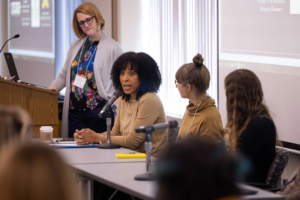 IAPHS can continue to support MPC’s interdisciplinary research and training.
IAPHS can continue to support MPC’s interdisciplinary research and training.
It would be wonderful to hear about best practices from other members’ institutions or experiences to support interdisciplinary research and researchers.
We would also appreciate having IAPHS provide professional development webinars as well as in-person opportunities at the annual conference, around supporting early career researchers doing interdisciplinary work. For example, how can we reduce barriers to interdisciplinary collaboration– such ideas would be helpful for IAPHS to gather, and provide for us, or provide a convening space for us. This would be particularly helpful for more senior faculty as well, those moving into positions of leadership, at higher levels of the institution, not just to implement for junior folks.
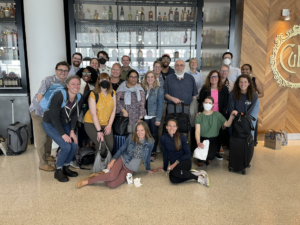 Would you like to say something about who is answering the questions? How would the interested IAPHS members be able to contact you?
Would you like to say something about who is answering the questions? How would the interested IAPHS members be able to contact you?
You can always learn more about us on our website at pop.umn.edu or contact us at mpc@umn.edu.
Will you be at the conference this year? If the readers want to reach you, what’s the best way to contact you?
Yes – of course! The Golden Gophers will represent! MPC will have a booth at the conference, and many of our members will attend the conference too. You can also always learn more about us on our website at pop.umn.edu or contact us at mpc@umn.edu.


All comments will be reviewed and posted if substantive and of general interest to IAPHS readers.